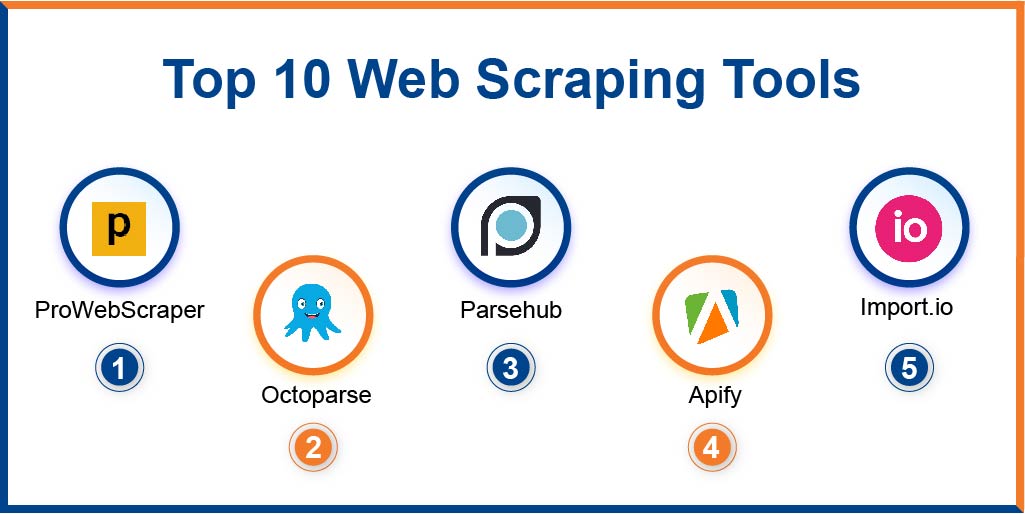
Job portals have become one of the most valuable resources for both job seekers and employers. These websites are filled with vast amounts of data, such as job postings, company profiles, and candidate information. For recruiters, staffing agencies, or even data analysts, online screenshot tool extracting this data efficiently can provide a competitive edge. Web scraping tools allow you to automate the collection of job-related data from various job portals, making the process faster and more accurate. In this article, we will explore some of the best web scraping tools for collecting data from job portals, their features, and how they can improve the efficiency of your recruitment or market research efforts.
1. Scrapy: A Powerful and Flexible Framework
Scrapy is one of the most popular and powerful open-source web scraping frameworks for Python, and it is ideal for collecting data from job portals. It is particularly useful for large-scale data extraction projects, as it is capable of handling complex scraping tasks and can be used for crawling entire websites. Scrapy allows you to define specific rules for scraping job listings, including the ability to target job titles, company names, locations, job descriptions, salary information, and more. With its asynchronous processing, Scrapy can efficiently handle multiple requests simultaneously, making it perfect for scraping data from multiple job portals. Additionally, Scrapy provides built-in features for handling challenges like pagination, dynamic content, and CAPTCHA protection, which are common on job websites.
2. BeautifulSoup: Simple and Effective for Beginners
BeautifulSoup is another widely-used web scraping library in Python that is especially suitable for beginners or for smaller-scale scraping projects. While it may not be as powerful as Scrapy for large projects, BeautifulSoup is incredibly effective for parsing HTML and extracting specific elements from job portals. It allows users to easily navigate the structure of a webpage, locate the job listings, and extract relevant data like job titles, employer names, and posting dates. BeautifulSoup is often used in combination with the requests library, which helps in fetching the HTML content of job portals. For smaller-scale tasks or one-time data scraping, BeautifulSoup is an excellent choice, offering simplicity without compromising on functionality.
3. Octoparse: A User-Friendly Web Scraping Tool
For those who prefer a no-code solution or lack programming skills, Octoparse is an excellent choice for scraping data from job portals. Octoparse is a powerful, user-friendly web scraping tool that offers both a desktop application and a cloud-based service. The visual interface makes it easy to configure scraping tasks without writing any code, making it perfect for non-technical users. It provides pre-built templates for scraping job postings from various websites, including popular job portals like Indeed, Glassdoor, and LinkedIn. Octoparse also has advanced features like handling pagination, dynamic content, and CAPTCHAs. Once the data is scraped, Octoparse can export it to formats like Excel, CSV, or directly to a database for further analysis.
4. ParseHub: A Versatile Tool for Complex Websites
ParseHub is another excellent web scraping tool for extracting data from job portals, especially those with complex layouts or dynamic content. Like Octoparse, ParseHub offers a visual interface that allows users to create web scraping projects without needing to write code. It is particularly useful for job portals that load content dynamically using JavaScript, as ParseHub is capable of handling JavaScript rendering. With its point-and-click interface, you can easily define the data you want to scrape, such as job descriptions, skills required, salary range, and more. ParseHub also supports pagination, form submissions, and can scrape multiple pages in a single project. Once your scraping task is complete, ParseHub allows you to export your data in various formats, including Excel, CSV, and JSON, making it ideal for market research or recruitment analysis.
5. Apify: Advanced Scraping with Automation and Scheduling
Apify is a cloud-based platform that offers an advanced web scraping service with a focus on automation. It is particularly suited for scraping large-scale job portals and collecting structured data over extended periods. Apify allows users to automate the scraping process by setting up custom workflows and scheduling scrapes at specific intervals. This is especially helpful for job portals that frequently update job listings, as you can ensure that your data is always up-to-date. Apify supports both public job portals like LinkedIn and Indeed and private websites, making it versatile across various platforms. Additionally, Apify’s integration with APIs enables seamless data export into your CRM, database, or data analytics tools, making it an excellent tool for businesses looking to automate their job scraping efforts and streamline their recruitment process.
Conclusion
Choosing the right web scraping tool for collecting data from job portals depends on your needs, technical skills, and the scale of the scraping project. If you’re looking for a powerful and flexible solution with full control over the scraping process, Scrapy might be the best option. However, if you need a simpler, no-code solution, Octoparse or ParseHub would be perfect for your needs. For advanced scraping and automation, Apify is a great choice for businesses looking to schedule and scale their scraping efforts. Regardless of the tool you choose, web scraping can save time, increase the accuracy of your data, and allow you to efficiently collect valuable insights from job portals for your recruitment or market research efforts.